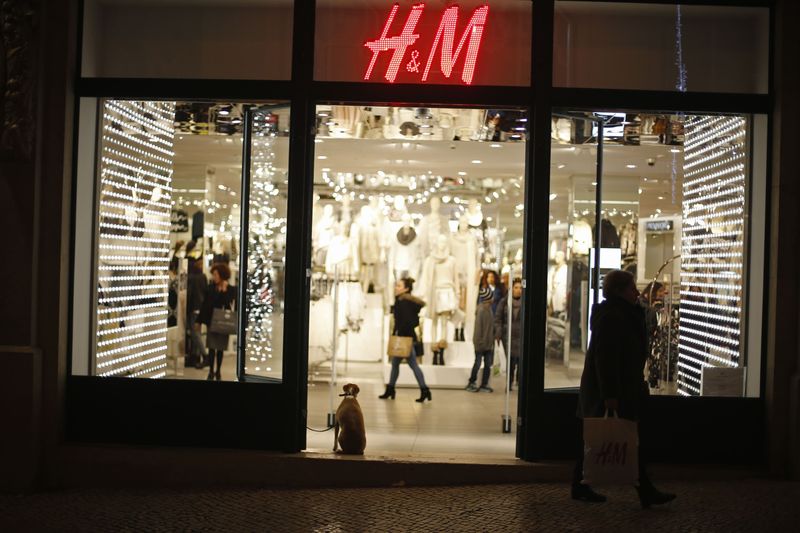Street Calls of the Week
By Peter Nurse
Investing.com - European stock markets edged lower Wednesday, with weak Chinese data and disappointing sales from H&M raising concerns about the global economic recovery.
At 3:35 AM ET (0735 GMT), the DAX in Germany traded 0.1% lower, the CAC 40 in France fell 0.1% and the U.K.’s FTSE 100 dropped 0.1%.
Swedish clothing giant Hennes & Mauritz (ST:HMb), the world's second-biggest fashion retailer, reported Wednesday disappointing sales growth from a year ago in the three months through August, driving its stock 3% lower.
"Lockdowns and restrictions have continued to hamper development, particularly in Asia. However, as restrictions have been eased, sales in store have picked up in many markets while online sales have continued to increase," H&M said, in a statement.
The news was more encouraging at Inditex (MC:ITX), the owner of the Zara chain and the world’s largest fashion group, with the Spanish conglomerate’s sales seen 2% above the pre-pandemic 2019 levels. Its stock rose 0.3%.
Earlier Wednesday, data out of China suggested that the world’s second-largest economy, and the main regional growth driver, hit a speed bump in August thanks to Covid-19 outbreaks and supply disruptions.
Retail sales grew 2.5% year-on-year, a sharp drop from July’s 8.5% growth and at the slowest pace since August 2020, while industrial production grew 5.3% year-on-year, its weakest pace since July 2020.
Back in Europe, U.K. consumer prices rose 3.2% on the year in August, a sharp climb from July’s 2.0%, the highest rate since March 2012, while French August annual CPI was confirmed at 1.9%. Neither set of numbers included the surge in energy prices that has happened in September, which reached new heights in the U.K. on Wednesday as a key interconnector cable bringing in power from France was taken offline by a fire.
There are also inflation figures from Italy due later Wednesday, along with Eurozone July industrial production numbers.
This all follows the release Tuesday of a smaller-than-expected rise in U.S. inflation for the month of August, creating more uncertainty over the timing of the Fed’s tapering of asset purchases.
Crude prices strengthened Wednesday, boosted by a larger than expected drawdown in U.S. crude stocks coupled with expectations of a substantial recovery in demand as countries get on top of the recent Covid-19 outbreak.
Crude oil supply data from the American Petroleum Institute, released late Tuesday, showed a hefty draw of 5.4 million barrels last week, after Hurricane Ida shut numerous refineries and offshore drilling production.
Investors now await crude oil supply data from the U.S. Energy Information Administration, due later in the day, for confirmation.
Additionally, the International Energy Agency predicted on Tuesday that Covid-19 vaccine rollouts could drive an economic rebound, resulting in a sharp jump in demand of 1.6 million barrels a day next month, with continued growth to the end of the year.
By 3:35 AM ET, U.S. crude futures traded 1% higher at $71.19 a barrel, while the Brent contract rose 1% to $74.31.
Additionally, gold futures fell 0.2% to $1,802.70/oz, while EUR/USD traded 0.1% higher at 1.1817.
